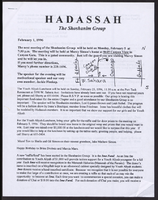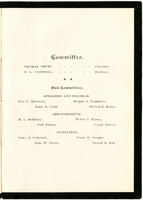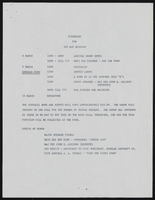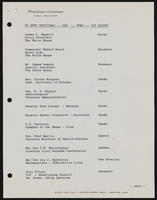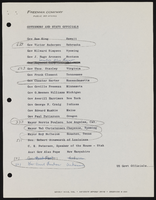Search the Special Collections and Archives Portal
Search Results
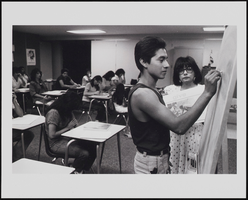
Dora Tevez Herrman teaches English as a Second Language (ESL) to members of the Nevada Association of Latin Americans (NALA) in Las Vegas, Nevada: photographic print
Date
Archival Collection
Description
Originally from Buenos Aires, Argentina, Dora Tevez Herrman is a teacher of English-As-A-Second Language at the Nevada Association of Latin Americans (NALA), a community-based non-profit organization in Las Vegas. Her services are vital in helping Hispanic immigrants to learn English and to more easily assimilate into life in the United States. Dora Tevez Herrman went on to become a teacher, Assistant Principal and Principal in the Clark County School District.
Image
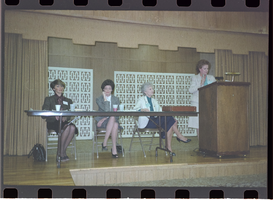
Film transparency of Shelley Berkley, Blanche Zucker and two unidentified women at an event at the Mesquite Club of Las Vegas, Nevada, mid-1980s
Date
Description
Image
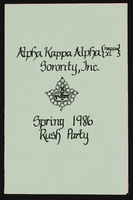
Alpha Kappa Alpha Sorority, Kappa Xi chapter rush party flier
Date
Archival Collection
Description
From the Alpha Kappa Alpha Sorority, Incorporated, Theta Theta Omega Chapter Records (MS-01014) -- Chapter records file.
Text
Rainier Spencer oral history interview
Identifier
Abstract
Oral history interview with Rainier Spencer conducted by Sarah Buckner on April 27, 2015 for the African Americans in Las Vegas: a Collaborative Oral History Project. In this interview, Spencer discusses his personal history and arriving to Las Vegas, Nevada in 1997. He talks about his experience as a professor at the University of Nevada, Las Vegas (UNLV) and his involvement regarding diversity issues at UNLV. Spencer then discusses the novel
Archival Collection

